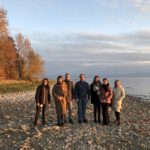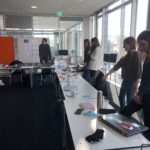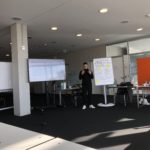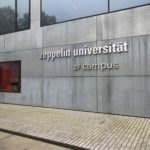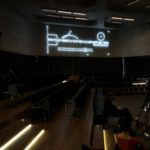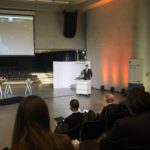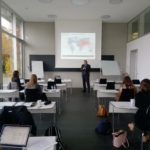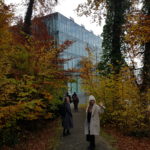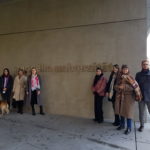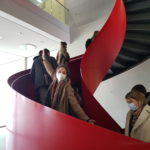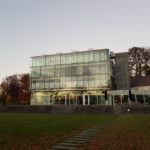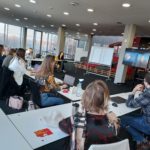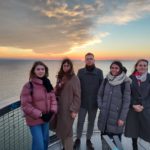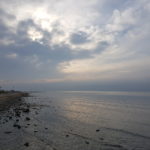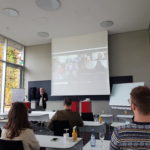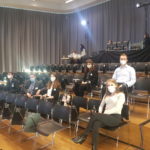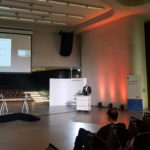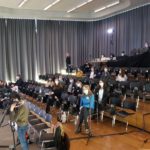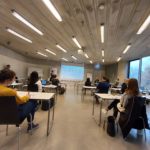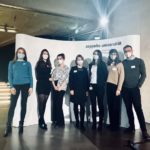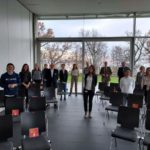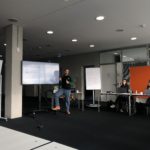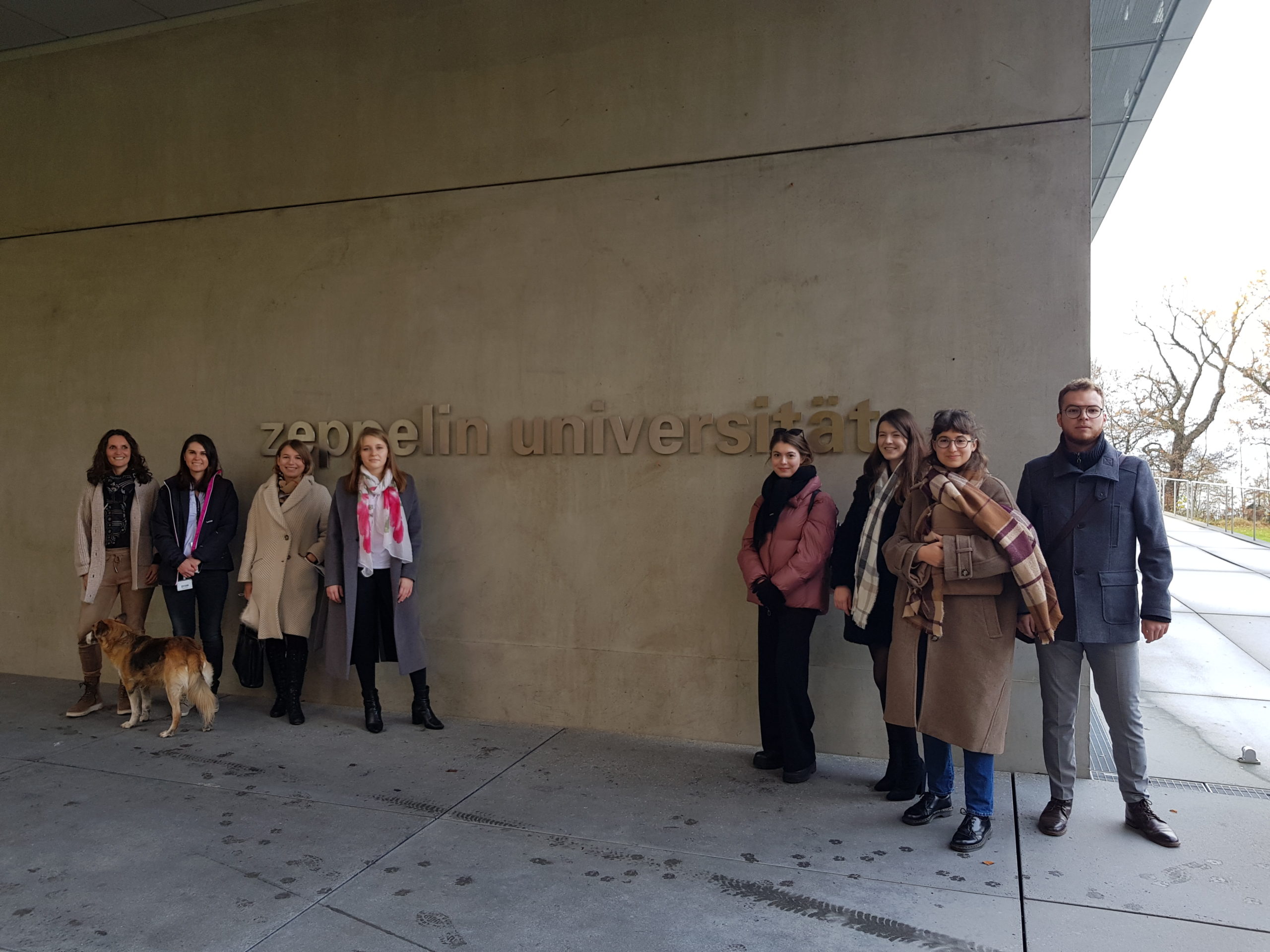
This year’s research project TSRG 2021 as a collaborative initiative between Leadership Excellence Institute Zeppelin and the Boym Institute continued with a Transcultural Winter School in Zeppelin University, in Friedrichshafen. It took place between 8th and 12th November. The trip included a series of valuable workshops that were useful not only for the current project but also for the student’s future academic work. Of course, we should also mention the Transcultural Leadership Summit 2021that took place at that time. It represents an information platform to deepen participants’ cultural knowledge and to foster mutual understanding. This year’s region, Southeast Asia, represents both opportunities and challenges, and it is gaining increasing importance. The two-day event through keynotes from experts from SEA and workshops brought more attention to the importance of this region.
During the first day, Polish participants were warmly welcomed by the organizers of the transcultural caravan and representatives of LEIZ. They were welcomed and introduced to the Zeppelin University initiative, by Jessica Geraldo Schwengber, Prof Julika Baumann Montecinos and Dr Lennart Brand. Participants also had the chance to attend a workshop led by Dr Christopher Köhler of LEIZ, entitled “Writing a Quantitative/Empirical Paper — (Many) Ways that Lead to Rome”. The first meeting ended with a nice conversation over coffee and cake before continuing with a tour of the beautiful SMH Campus of Zeppelin University. At the end of the day, thanks to the perfect weather, the students were able to enjoy the beautiful views of Lake Constance and the Alps.
The next day began early in the morning with a Keynote “ASEAN Cross-Region Cooperation: Mapping the Way Towards Identity Building” given by Prof Dafri Adussalim from ASEAN Studies Centre in Indonesia. The lecture was followed by a workshop about exploring Leadership Concepts, which was organized by Tobias Grünfelder. Another item on the agenda was an insightful workshop “Academic Writing — Book Chapter” given by Dr Dominik Fisher and Jessica Geraldo Schwengber. In the afternoon, the participants had the opportunity to visit the Zeppelin Museum, thus getting to know part of the culture and history of Friedrichshafen. The day ended with an informal gathering for dinner and conversation.
Day three was the last day on the Lake Campus. It started with a Keynote on BRI by Prof. Matthias Niedenführ. Following this great lecture, the part introducing the Transcultural Caravan Network began. It was hosted and introduced by Prof Julika Baumann Montecinos. The welcome speech was presented by Prof Josef Wieland. This was followed by an important virtual toast, a presentation of the TSRG 2021 participants and their contributions to the project. Then book launch of the TSRG 2020 was presented by their authors. The event ended with conversations over coffee and cake while talking with professors and exchanging ideas.
During the last two days, the Transcultural Leadership Summit 2021 took place. On November 11 the event officially started with a welcome by moderator Katharina Körth, an opening speech by Tobias Grünfelder and a Welcome address by Andreas Schell, the CEO at Rolls-Royce Power Systems AG. A series of keynotes on Southeast Asia followed, referring to this year’s topic of TLS: “Southeast Asia — Diversity & Digital Disruptions” by Prof Dr Christian von Lübke, “Navigating Culture and Leadership Development in Southeast Asia” given by Adirupa Sengupta, and closing this part of event Prof Josef Wieland, presenting the topic of Mitigating Risk from Cultural Complexity. Then the next part of the panel discussions took place in the following order: “Transculturality in action — How do transcultural leaders operate in Southeast Asia?” with moderator Dr Lennart Brand and speakers: Giovanni Spadaro, Nguyễn Thanh Sơn, Verena Siow; “How to prepare young leaders for cultural complexity?” moderated by Prof Dr Julika Baumann Montecinos and Annika Phuong Dinh, with panel speakers Dr Elizabeth T. Urgel, Dr Nguyen Nam, Dr Wawan Masudi. The event ended with a beautiful Indonesian Dance Performance by Freunde Indonesiens e.V. Polish students also had the opportunity to participate in the Karl Schlecht Forum about “Good Leadership”.
The last day of Transcultural Winter School was also the final day of Transcultural Leadership Summit 2021. Participants of the trip were welcomed by Indonesian Music by Freunde Indonesiens e.V., followed by two great keynotes: “Fixing the Leadership Gap in Southeast Asia” given by Vibhas Ratanjee, and “Global Literacies — Leadership Development for Global Executives” presented by Samuel M. Lam. The continuation of the day was divided into two workshop sessions, where participants could choose activities on various aspects of Southeast Asia and leadership. The trip ended with an informal meeting over diner with students and professors of LEIZ, during which participants of TSRG had the opportunity to exchange views, talk and sum up amazing memories that were gathered during TWS 2021.
czytaj więcej
Risk and oppportunities for self-driving vehicles. Exploring global regulations and security challenges in the future of connected vehicles. The report was co-produced by Boym Institute and 9DASHLINE.
How China uses its narratives on the Russo-Ukrainian war to court the Global South
Three years after Russia’s full-scale invasion of Ukraine, it is entirely clear that this conflict has irrevocably changed the geopolitical landscape both in Europe and beyond and its repercussions will be felt far beyond the battlefield for years to come.
Konrad SzattersAiluna Shamurzaeva – Research Fellow at the Boym Institute
Her research focuses on political economy, migration studies, and international trade. Ailuna, we are more than happy to welcome you to the team!
Dr. Nicolas Levi with a lecture in Seoul
On May 24 Dr. Nicolas Levi gave a lecture on Balcerowicz's plan in the context of North Korea. The speech took place as part of the seminar "Analyzing the Possibility of Reform and its Impact on Human Rights in North Korea". The seminar took place on May 24 at the prestigious Yonsei University in Seoul, South Korea.
Book review: “Europe – North Korea. Between Humanitarianism And Business?”
Book review of "Europe – North Korea. Between Humanitarianism And Business?", written by Myung-Kyu Park, Bernhard Seliger, Sung-Jo Park (Eds.) and published by Lit Verlag in 2010.
Nicolas LeviCentral Asia. The winding road to regional integration
The aim of the paper is to present the current stage of integration among the Central Asian republics and to analyze directions and dynamics of this process in the nearest future. This study also attempts to identify factors which can either slow down or strengthen the process of integration as well as its causes and consequences.
Jerzy OlędzkiCoronavirus and climate policies: long-term consequences of short-term initiatives
As large parts of the world are gradually becoming habituated to living in the shadow of the coronavirus pandemic, global attention has turned to restarting the economy. One of the most consequential impacts of these efforts will be that on our climate policies and environmental conditions.
Dawid JuraszekWe would like to inform, that Observer Research Foundation has published article of Patrycja Pendrakowska - the Boym Institute Analyst and President of the Board.
Patrycja PendrakowskaAre “Climate Refugees” (Just) About Climate?
As the awareness of the scale and pervasiveness of climate impacts on human societies keeps rising, so does the frequency with which the terms “climate refugees” and “climate migrants” are being used in the public discourse “to describe those who are being displaced due to adverse consequences related to climate change” (Atapattu, 2020).
Dawid JuraszekWill 2023 be the year of improving relations between Albania and South Korea?
In April 2021, the 30 years of establishing diplomatic relations between the Republic of Korea (ROK) and Albania was officially organized in the South Korean embassy in Athens, the capital of Greece. The localization of these official festivities perfectly pictured the nature of the relations between these two countries.
Nicolas LeviNot only tests and masks: the history of Polish-Vietnamese mutual helpfulness
On the initiative of the Vietnamese community in Poland and Vietnamese graduates of Polish universities, our country received support from Vietnam - a country that deals with the threat posed by Sars-Cov-2 very effectively.
Grażyna Szymańska-MatusiewiczBook review: “Korean Diaspora in Postwar Japan – Geopolitics, Identity and Nation-Building”
Book review of "Korean Diaspora in Postwar Japan - Geopolitics, Identity and Nation-Building", written by Kim Myung-ja and published by I.B Tauris in 2017.
Nicolas LeviThe number of confirmed executions and frequent disappearances of politicians remind us that in North Korea the rules of social Darwinism apply. Any attempt to limit Kim Jong-un's power may be considered hostile and ruthless.
Roman HusarskiTime for a new normal – enhancing Europe’s military profile in the Indo-Pacific in 2025
2024 witnessed a notable stepping up of Europe’s military profile in the Indo-Pacific. Building on these developments, 2025 should be a year of continuation, bringing even more defence engagement of European states with their Indo-Pacific partners.
Jakub WitczakThe Boym Institute message to Indian policymakers and analysts
India’s current position towards the Russian invasion on Ukraine may damage its reputation as a major force of peace in the world
Charitable activities of the Vietnamese in Poland: their scope and sources
The scale of assistance provided to medics by the Vietnamese community during the 2020 pandemic inspires admiration and gratitude. It stems from the sense of belonging to Poland and deeply rooted in the culture order to help those in need and repay the debt incurred at the time when they themselves needed such help.
Ewa Grabowska“May you be the mother of a thousand sons” – the status of women in Indian society
The 1950 Indian Constitution introduced the principle of equal opportunities for gender equality, which grants women and men the same rights in family life, political, social and economic life. So why is it that nearly forty per cent of girls aged 15-17 do not attend school, the custom of dowry giving is still cultivated and prenatal sex selection is still a huge social problem?
Magdalena RybczyńskaChina – USA in the South China Sea
The trade war is just one of the problems of confrontation between the United States and the People's Republic of China. Many aspects of this competition coincide in the South China Sea.
Paweł BehrendtThe Boym Institute contribution to the Transcultural Caravan project
We are pleased to announce, that our analysts and contributors are among authors of the newest publication - "European Perspectives on the New Silk Roads – A Transcultural Approach".
Peace is a precondition for LiFE. How systemic conflicts endanger developmental goals
The G20 can play a pivotal role in dealing with the mounting global challenges by proposing policy coordination and solutions disincentivising armed conflicts.
Krzysztof ZalewskiAt the Boym Institute we are coming out with new initiative: #WomeninBoym, which aims to show the activity of this – often less visible – half of society. We will write about what women think, say and do. We will also publicise what women are researching and writing.
Online Course: “Educational tools for addressing the effects of war”
The Adam Institute for Democracy and Peace is offering “Betzavta” facilitators, middle school and high school educators, social activists, communal activists and those assisting refugees an online seminar to explore educational issues related to wartime.
Online Course: “Conflict Resolution and Democracy”
The course will be taught via interactive workshops, employing the Adam Institute’s signature “Betzavta – the Adam Institute’s Facilitation Method“, taught by its creator, Dr. Uki Maroshek-Klarman. The award-winning “Betzavta” method is rooted in an empirical approach to civic education, interpersonal communication and conflict resolution.
The Dasgupta Review on Women and the Environmental Crisis
Commissioned in 2019 by the British government and published in February 2021, The Dasgupta Review has been likened to the 2006 Stern Review. Where the latter brought to widespread attention the many failings of the world economy in the face of global warming, the former makes similar points as regards biodiversity – and identifies the unique challenges faced by women.
Dawid Juraszek

